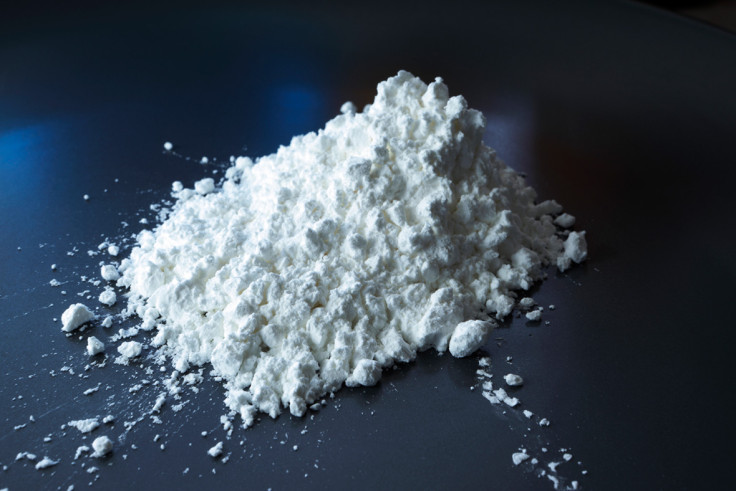Could 'party drug' ketamine be a treatment for cocaine addiction?
Ketamine is increasingly studied by scientists for its potential therapeutic properties.

In the past few years, ketamine has made its grand return on the party scene. The drug is commonly used as a human anaesthetic or as an animal tranquilliser in veterinary medicine, but it has also often found its way in the hands of revellers.
Ketamine has been approved in clinical practice by the US Food and Drug Administration (FDA) in 1970. Due to its side-effects, such as hallucinations, ketamine rapidly became used as a recreational drug. This trend had to some extent been reversed in past decades, but there has recently been new reports of ketamine resurfacing as a 'party drug' in Europe and the US.
To put things into perspective: the Drug Misuse: crime survey for England and Wales found that 0.5% of adults are estimated to have used ketamine between 2014 and 2015, a figure which is similar to that for LSD and amphetamines, but much lower than for cannabis, cocaine or ecstasy.
Surprisingly perhaps, the drug has also started to dominate the headlines for a different reason – its therapeutic properties have increasingly been investigated in scientific research. It has shown promising results, in particular for the treatment of severe depression and suicidality and has triggered interest in the field of addiction research.
While it may seem counter-intuitive to use a drug that is sometimes use recreationally to treat addiction, scientists are investigating whether ketamine could help people suffering from one of the most difficult drug addictions to treat – addiction to cocaine.
Obstacles to treat cocaine addiction
No medicine is currently approved by the FDA to treat cocaine addiction. Although there has been a focus in recent years on finding treatments, the outcomes have been disappointing. "Research in animal models has yielded very positive results, but these have not been replicated convincingly in human trials that have taken place later on," Wim van den Brink, Professor of Psychiatry and Addiction at the Academic Medical Center, University of Amsterdam, told IBTimes UK.
Cocaine acts on the dopamine system, blocking the reuptake of the pleasure-regulating neurotransmitter dopamine in the pre-synaptic dopamine producing brain cells, thus increasing its concentration in synapses and its binding to the post-synaptic dopamine brain cells. This process results in the euphoric feeling that occurs when the drug is taken.
Scientists have investigated whether dopamine antagonists – which block the post-synaptic dopamine receptors – could have benefits. It was the case in animal models, but in humans, side effects have led to low treatment compliance.
Renewed interest in Ketamine
Because of these challenges, addiction experts have widened their horizons to study the effects of medications which are traditionally used to treat very different physical or psychiatric conditions.
"There is a general trend at the moment in psychiatric research known as 'repurposing'. The idea is to test drugs that are already approved for other types of disorders, that may have nothing to do with the conditions for which you are now being tested. In this context, we are testing drugs with therapeutic indications unrelated to addiction and ketamine appears to be an interesting candidate," Van den Brink said.

Ketamine is increasingly studied for all types of addictions. In the UK, a study funded by the Medical Research Council is recruiting volunteers to test the effects of the drug on people suffering from alcoholism. A range of studies have also been conducted about heroin, suggesting that intravenous infusions of ketamine could lead to longer-lasting reductions in craving for heroin.
Ketamine targets the glutamate pathway which is involved in the development of many addictions – indeed, glutamatergic input indirectly enhances the release of dopamine in the nucleus accumbens, one of the brain's most important reward centres. In addition, the glutamate system is also directly involved in reward and relief craving. This may explain why ketamine shows so much promise as a potential treatment for a wide range of addictions.
Research regarding ketamine for cocaine dependence is just in its infancy, but it represents one of the more important recent advances in the treatment of cocaine addiction. Studies in cocaine dependent animals have indeed brought evidence that ketamine has a real therapeutic potential.
Two studies, the first two steps of the way
The novelty is that studies have now been conducted in humans. The first, published in 2014 in Biological Psychiatry, was a small double-blind, cross-over trial with only eight participants suffering from cocaine dependence. However, it had a very interesting design: all participants received two doses of intravenous ketamine infusions and an infusion with another (inactive) drug which had similar side effects to ketamine – lorazepam. The researchers showed that ketamine caused a much stronger motivation to start treatment and resulted in less cravings during a cue-exposure test than lorazepam.
"The limitation of this study was that it only showed effects on motivation and subjective reported feelings towards cocaine, but it did not prove ketamine that could induce behavioural changes, i.e. reduction in cocaine use in cocaine dependent subjects", explained Van den Brink, who gave a presentation on recent highlights in addiction at the congress of the European College of Neuropsychopharmacology.
To address this shortcoming another study was conducted and published in 2016 in the prestigious journal Molecular Psychiatry. It compared the effects of placebo, ketamine and a known ineffective drug with side-effects similar to ketamine (midazolam). No changes in the rewarding effects of cocaine were identified for ketamine or midazolam. However, the subjects then had to choose between immediately using cocaine in the lab or receiving a monetary reward later, and the scientists found that those who had taken ketamine were more likely to choose the money than those on placebo or midazolam. This suggests that ketamine does have an impact on objective behaviours of cocaine addicts.
The next steps will be to conduct randomised control trial to see if similar results can be observed in larger populations, outside the lab, in the real world.
Is there an ethical debate to have?
For someone outside the field, one question may spring to mind: is it risky to treat a patient who has an addiction with a drug that can potentially be abused?

Obviously, taking ketamine is not harmless and people who do so frequently may start experiencing symptoms such as withdrawal or cravings. Yet, the number of people who develop an addiction remains low. The Drug Misuse Report from 2015 indicates that less than 1% of ketamine consumers used the drug everyday.
"There is actually two issues: Is ketamine addictive? And if so, should you give it anyway to cocaine-dependent patients? I would argue that the potential for addiction with ketamine is quite low because even though there has been recreational use for many years, we see very few patients who are addicted to the drug", Van den Brink pointed out.
And even if there is a risk of addiction, the benefits of taking ketamine to treat a severe cocaine addiction may far outweigh the risks. It is also crucial to note that ketamine infusions that are given in the lab are less potent than drugs users can find on the street, and they are not mixed with other, potentially harmful substances.
More importantly, ketamine is currently only used against addictions in research settings, with its administration strictly controlled by scientists. "Addiction and diversion are less likely to occur during trials than when prescribed in routine practice. The priority now is to test whether it has an effect in larger randomised controlled trials even before thinking how it should be prescribed", Van den Brink said.
If ketamine ends up being approved to treat addiction, the key will be for clinicians to implement a number of safeguards to make sure the drug is safe, and not abused. This includes giving the proper doses, prescribing for short periods at a time and staying in close contact with the patients and his relatives.
© Copyright IBTimes 2025. All rights reserved.






















